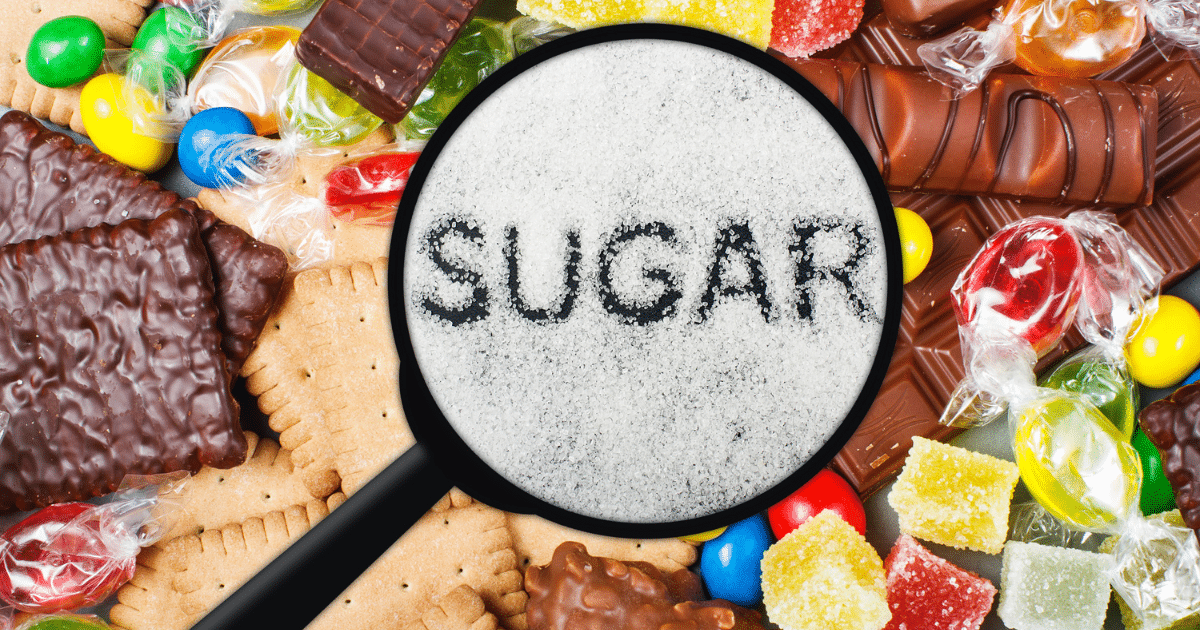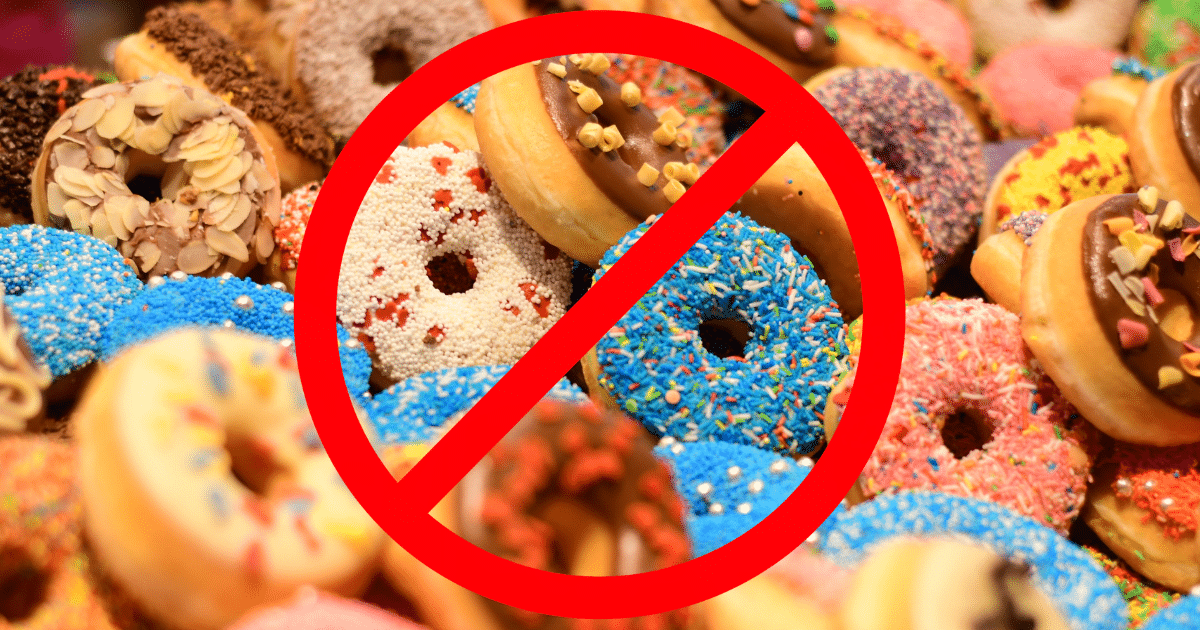Sugar Withdrawal – What You Need to Know
We all want to live a healthier lifestyle, right? I mean, after all, you’re reading this article, no? Many times, one of the first things that people to improve their health is to remove sugar from their nutrition – and that’s great! However, it can cause some temporary concerns due to what is known as “sugar withdrawal.”
When you hear the term “sugar withdrawal” many people commonly associate it with something like nicotine withdrawal or alcohol/drug withdrawal. Like with those things, removing sugar from your diet can, in fact, cause withdrawal symptoms. How severe those symptoms are really comes down to the individual on a case by case basis.
The following is what you need to know about sugar withdrawal if you are thinking about cutting sugar from your nutrition.

Disclaimer: This article is for informational purposes only and is not meant to treat or diagnose any condition. It is recommended that you speak with your doctor before starting any exercise program, changing your daily nutrition, or adding any supplements to your regimen.
Table of contents

Yes, Sugar Withdrawal Is A Real Thing
It’s true. If you remove sugar from your nutrition (even if you replace it with sugar alcohols), your body will go through withdrawal similar to that of a drug. The hardest thing is knowing what has added sugar in it these days. Sure, we all know that cookies, pastries, donuts, soda, candy, and the like all contain sugar, but little did you know that many condiments, soups, frozen foods, and pre-packaged goods can also have added sugar slipped into them where you wouldn’t assume it would be. For that reason, it’s always a good idea to read the nutrition label and ingredients before you purchase an item from the grocery store – we can no longer assume.
Related Article: Can You Use Monk Fruit Sweetener While on Keto?
Sugar is treated in the brain like an actual drug – think of something like cocaine. It’s highly addictive and your body can crave it when none is present. When sugar is detected by the brain, it releases the hormone dopamine. Dopamine is what we can call the “happy hormone.” When released, it provides a feeling of happiness and pleasure. The brain loves sugar, yet so does cancer cells and the presence of sugar in the system of a cancer patient can actually speed up the growth of cancerous cells and cause more harm than good.
Additionally, due to the addictive nature of sugar, the ingredient can cause cravings. You commonly experience this when you eat something with sugar. You get a sugar high, then comes the crash in energy levels, and is then finally followed up by the craving for something sweet (more sugar). The brain is looking for that dopamine fix again.
You Need to Break the Habit
Like any addiction, when you consume sugar regularly, its consumption becomes a habit. It takes 66 days to form a habit[1] – whether it be healthy or unhealthy. Breaking the habit can take some willpower and determination, but it can be done and the removal of sugar from your nutrition can create a new healthy habit when it’s all said and done.
Related Article: The Secrets About Artificial Sweeteners for Weight Loss
Think about all of the things you consume on a daily basis that can have high amounts of sugar in them. Maybe it’s coffee each morning with sugar or a creamer containing sugar. Maybe you like a nice glass of orange juice in the morning. That bowl of cereal, is it really healthy or does it also contain added sugar?
Too many people can’t even make it past breakfast without going over their daily recommended amount of sugar. Sugar addiction[2] is a concern and a real problem.
Sugar Withdrawal Symptoms
Once you commit to cutting sugar from your nutrition, don’t be surprised if you experience sugar withdrawal symptoms. As mentioned earlier, these withdrawal symptoms can vary from person to person, but below are some of what you could expect.
- Mood swings
- Headaches
- Change in sleeping patterns
- Weight loss
- Cold or flu-like symptoms
- Fatigue
- Cramps
- Nausea
- Bloating
- Anxiety
- Hunger
- Diarrhea
- Muscle aches
- Depression
- Chills
- Cravings
The thing you need to know about the symptoms above is that everything will go in stages. For instance, you will start off motivated to remove sugar from your nutrition. Things will go great for a little and then all of a sudden you can get pounded by one, some, or even all of the symptoms above. Do not worry, as with everything, this too shall pass. When the withdrawal symptoms hit, you are going to want to give in and go back to your old lifestyle which includes sugar – don’t. Resist the urge and fight through it. In the end, it will make you mentally stronger for having to go through it and endure the withdrawal symptoms.
The symptoms you face will eventually peak and you will start feeling better and the motivation you had at the beginning will again be reignited. Once you make it past the withdrawal symptoms, you will start to notice changes and improvements in your health and appearance.
You can also leverage short walks to reduce sugar cravings, which research has been found to be helpful.
How to Reduce Sugar Cravings and Withdrawal
There are several ways you can reduce the cravings and sugar withdrawal you may face. Some of these are:
- Drink plenty of water
- Consume healthy fats
- Increase protein intake
- Use spices to add flavor to food
- Add fiber to your nutrition
- Exercise more
- Plan out your meals/snacks in advance
- Clean out your refrigerator/freezer/pantry
Is It Worth Removing Sugar from Your Nutrition?

Absolutely! Some people will slowly remove sugar by reducing their intake over time while others will jump in with both feet and go cold turkey. Which is the best strategy? That is a loaded question. However, I would recommend going all in and removing sugar altogether versus slowly. Why? Because I feel people won’t adhere to complete removal and will keep pushing it off to the next day, and then the next day, so on and so forth. Just do it all at once and get it over with.
The health (and weight loss) benefits that can be had by removing sugar from your diet are completely worth the short period that you might face the sugar withdrawal symptoms. By removing sugar your brain will additionally thank you by providing you with better focus and not as much brain fog due to the yo-yo effect sugar has on your energy and mental focus[3].
I highly suggest you take the challenge to remove sugar from your diet. I’m not telling you that it will be easy, but in the end, it will be completely worth it.
References:
- Gardner, B., et al. (2012). Making health habitual: the psychology of ‘habit-formation’ and general practice. British Journal of General Practice. 62(605), 664-666.
- Avena, N. M., Rada, P., & Hoebel, B. G. (2008). Evidence for sugar addiction: Behavioral and neurochemical effects of intermittent, excessive sugar intake. Neursci Biobehav Rev., 32(1), 20-39.
- Johnson, A. (2016). Beating brain fog. The Sugar Movement.


*Disclosure: This article may contain affiliate links or ads, which means we earn a small commission at no extra cost to you if you make a purchase through these links. These commissions help support the operation and maintenance of our website, allowing us to continue producing free valuable content. Your support is genuinely appreciated, whether you choose to use our links or not. Thank you for being a part of our community and enjoying our content.
PLEASE CONSIDER SHARING THIS ON YOUR SOCIAL MEDIA TO HELP OTHERS LEARN MORE ABOUT THIS TOPIC.





